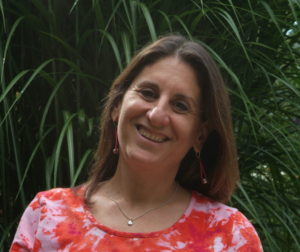
Dylan, Identity and Personal Expression

Identity is fluid. We can continuously reinvent ourselves through Personal expression. Culture continuously evolves and so do we. The world around us never stays still and we change right alongside it.
Worldwide Recognition for Personal Expression
In 2016, The Swedish Academy in Stockholm awarded Bob Dylan the Nobel Prize in Literature for “having created new poetic expressions within the great American song tradition”. Sara Danius, Permanent Secretary of the Swedish Academy, said: “If you look back, far back, 2,500 years or so, you discover Homer and Sappho and they wrote poetic texts that were meant to be listened to, that were meant to be performed, often with instruments — and it’s the same way with Bob Dylan.” She also said: “for 54 years now he has been at it – and reinventing himself constantly… reinventing himself…creating a new identity.”
We Continuously Reinvent Our Identity
Have you ever tried to look back to capture how you perceived something in your past? Have you ever noticed how the way you think today has changed from the way you thought about things in the past? Isn’t that only to be expected? Isn’t that only natural? But how do we deal with these changes? Do we accept them as natural or do we defend ourselves against change?
Personal Expression Can Be Private or Public
I don’t expect to win a Nobel Prize anytime soon, but that doesn’t mean I couldn’t or shouldn’t express myself. I can do so privately or I can express myself more publicly. There are platforms and means either way.
One can write in his journal for no one else to view. One can sing in the privacy of their own home for no one else to hear. However, these days, one can also easily post a video for all to see on YouTube or collaborate with others on a platform such as Bandhub.com.
Personal Expression and Mental Health
Self-expression can be really healthy for the heart, mind and soul. Writing can help me clarify what is in my mind or what is in my heart. A creative outlet can transform something that feels heavy, ugly or dark into something of meaning or beauty. Self-Expression shared more publicly could potentially be of benefit to others. It could be validating, soothing or meaningful in some way to take in another person’s expressions.
Personal Expression Doesn’t Require Talent
David C Ward of Smithsonian.com wrote: “Dylan proved that you could be a great singer without being able to sing”. You don’t have to have a “good” voice to sing. What is a good voice anyhow? Expressing your truth and your heart is what matters. Finding ways to relate to ourselves and others is what matters. Beauty is in the eye of the beholder, no?
You Can Express Yourself
Expression can come in many forms. You can dance. You can write. You can draw. You can garden. You can do crafts. You can play the Kazoo. You can pray. You can chant. You can run. You can jump. You can play a sport. The list goes on and on and on.
Having Fun and Socializing with Self Expression
Recently I discovered Bandhub.com. and learned that I can collaborate with others anywhere in the world without having to travel. I heard that someone participated in a collaboration by uploading of video of themselves simply knitting! How funny is that?!!
So, “to put my money where my mouth is”, I uploaded a personal example for this blog!
L isa T Perry, MEd, LCMHC, CCMHC, VMT-R is a Licensed Clinical Mental Health Counselor who loves to facilitate growth through personal and voice expression.
isa T Perry, MEd, LCMHC, CCMHC, VMT-R is a Licensed Clinical Mental Health Counselor who loves to facilitate growth through personal and voice expression.











